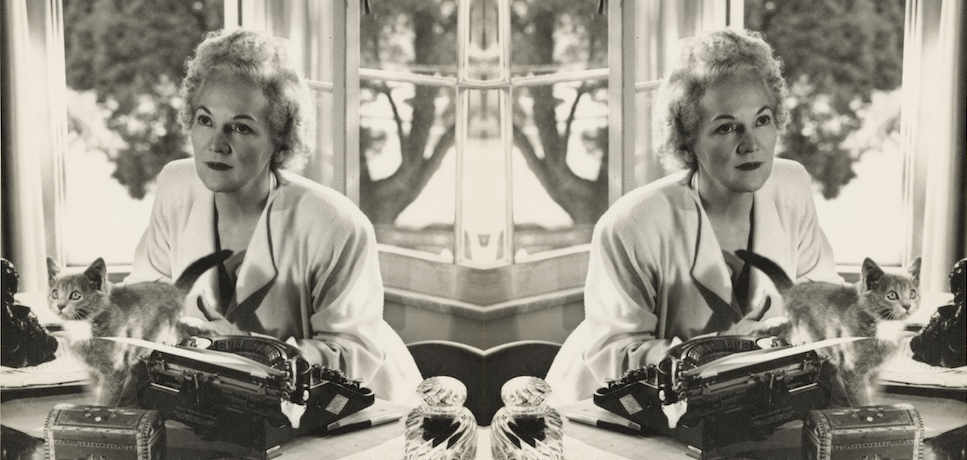TODAY: In 1890, Katherine Anne Porter is born.
- We’re on round eight of our personalized quarantine book recommendations, and we’re not even tired (okay, we’re a little tired). | Lit Hub
- “From today’s standpoint there was no financial incentive for Sesame Street’s founding duo to do what they did.” David Kamp on the radical creators of an iconic show. | Lit Hub TV
- Pace Sontag, we actually do need metaphor to go through this global illness: David Farrier on the treacherous language of coronavirus. | Lit Hub
- Why do some writers burn their work? Alex George investigates the impulse to torch it all. | Lit Hub
- Meet the stone collector of Iceland’s eastern coast: A. Kendra Greene gathers the history of a life. | Lit Hub Travel
- “Racists are a creative and prolific people.” Richard Lopez on the potency of single-syllable slurs. | Lit Hub
- Five books you may have missed in April that you can still read in May—or any other month, you know, because books are shelf-stable. | Lit Hub
- “This period will leave its marks on us—but what will those marks look like?” Eva Holland on the mystery of “after coronavirus.” | Lit Hub
- Francine Matthews invites you to enjoy these cozy, salt-streaked mysteries from New England’s cape and islands. | CrimeReads
- And Tango Makes Three, The Yellow House, On Earth We’re Briefly Gorgeous, and more rapid-fire book recs from 2020 Dylan Thomas Prize-winner Bryan Washington. | Book Marks
- Lydia Millet’s A Children’s Bible, Richard Ford’s Sorry For Your Trouble, and Samantha Harvey’s The Shapeless Unease all feature among the Best Reviewed Books of the Week. | Book Marks
- “The kids who need queer books still need them. They probably need them actually more than they did before.” Nicole Dennis-Benn, Garth Greenwell, Naoise Dolan, and Akwaeke Emezi in conversation. | EW
- In the work of Mary McCarthy, Margaret Foster, and other English and American writers, contraceptives have been used as symbols of class status, emotional and sexual development, and more. | The MIT Press Reader
- Readers imagined how authors like Hilary Mantel, Sally Rooney, Raymond Chandler and others might write themselves into their own best-known works. | The Spectator
- “From behind the counter, I learned that a supply chain isn’t an abstract concept; a real person forged each link.” Min Jin Lee on the labor of essential workers. | The New York Times
- “I resist the notion that literature should have to teach us anything, that it must necessarily be of use.” The case against seeking comfort or consolation in books during the pandemic. | Los Angeles Times
- African authors, frequently published by French presses, are leading a movement to keep their rights with African publishers. | The Guardian
- Somehow, this deep dive on Normal People’s Marianne’s bangs fails to address whether the bangs have Marxist politics. | Vanity Fair
Also on Lit Hub: Lit Hub Recommends: Sebald, Nina Simone, and baking a damn cake • On embracing the wig after a cancer diagnosis • Read a story from Tim Etchells’ collection Endland.
Article continues after advertisement
